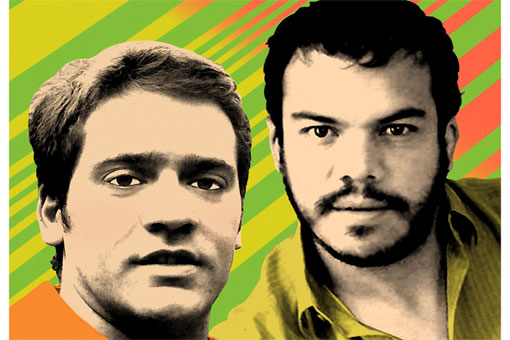When we first met, we knew we would end up working together. We had much in common, coming from peripheral regions in our countries—San Luis, Argentina (Matías), and Rancagua, Chile (Eduardo)—and from modest backgrounds, but with the opporunity to live and study in different countries. Most important, as fellow master’s students at Sciences Po University in Paris, we shared a common concern about Latin America’s failure to change the conditions of inequity that continue to afflict our region.
We blamed the poor quality of our region’s institutions. Our parents´ generation made an important contribution by reviving democracy, but today our democracies are weak, have little territorial penetration and are riddled with untenable levels of corruption and highly regressive tax structures. It is not surprising that society has so little confidence in the current system. According to Latinobarómetro, two out of three Latin Americans believe politicians lie to win elections. The surveys also indicate that three out of four Latin Americans believe that the judicial system does not treat all people equitably.
The message is clear: democratic institutions have not lived up to people´s expectations. Both of us felt, therefore, that something had to be done to improve our political and economic institutions. We also believed that new ideas for setting change in motion were emerging across the region.
That’s how we came to create Latin America’s first regional online public policy journal. Asuntos del Sur, which we launched two years ago in Paris, today boasts 50,000 online subscribers and a dozen active collaborators scattered across Latin America, the United States and Europe. At the same time, we organize conferences and roundtables in different countries to bring policymakers, leaders and students together around policy issues.
Our publication takes as its starting point our common challenge, as the new generation of policy thinkers and reformers, to persuade vested interests to construct institutions with fair rules and to empower marginal sectors. Since we have not found solutions, Latin America has struggled to create both social consensus for change and the cooperation necessary to achieve it—not to mention to institutionalize it.
This change requires a different level of effort than the democratic rebirth achieved by our parents’ generation. Political, social and private-sector protagonists must work together to create mechanisms that will allow democracy to finally penetrate the remaining institutions and societies…





